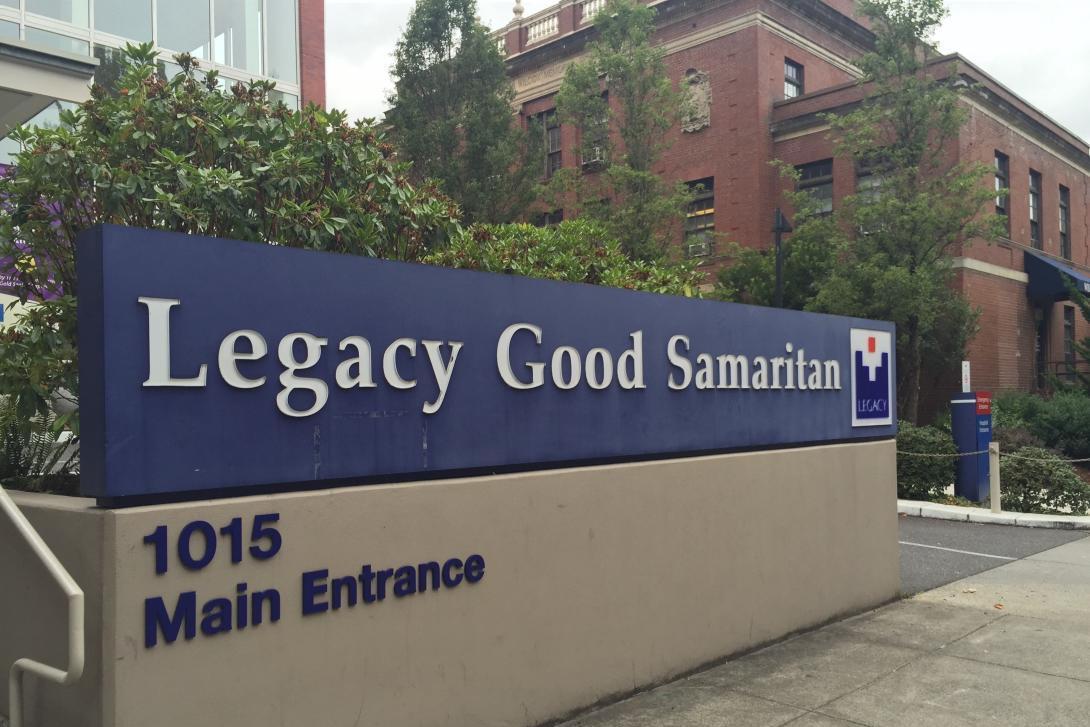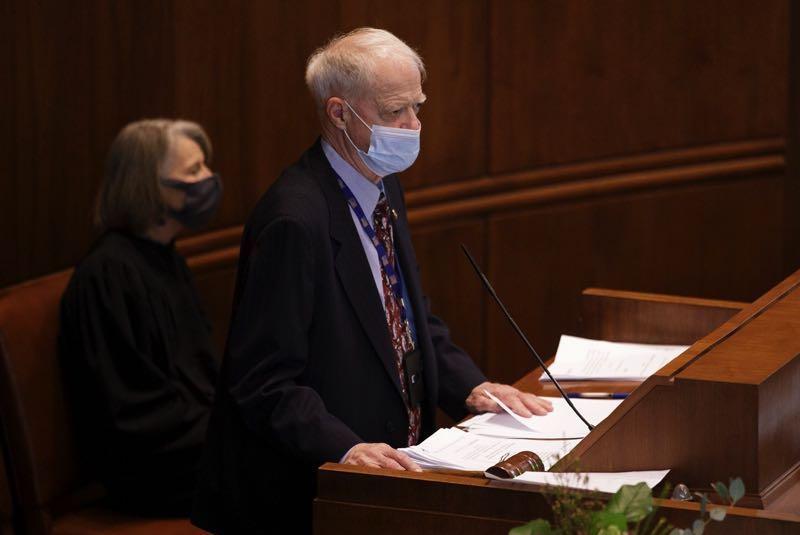
This article has been updated with additional comment from OHSU.
Oregon’s largest nurses union is faulting hospitals in the state for what it calls lax security following the fatal shooting at Legacy Good Samaritan Hospital in Portland on Saturday.
The Oregon Nurses Association released a statement Monday urging hospitals to strengthen training, procedures and screening to prevent violence against healthcare workers. The statement comes in response to a confrontation at Legacy Good Samaritan Hospital that left security officer Bobby Smallwood dead, another employee injured and healthcare workers alarmed.
“Tragically, violence against nurses and health care workers is all too common,” reads the nurses union statement, which cited research showing nurses have seen an increase in physical violence and verbal abuse and that 57 are assaulted each day in the U.S.
The nurses union cited complaints from its members that hospital management in Oregon has been “painfully slow to respond to nurses’ concerns.” Specifically, nurses have complained about hospitals being slow to install metal detectors and that security personnel are understaffed, overwhelmed and unable to appropriately use them.
Anecdotal complaints about unsafe working conditions, violence and threats surged during the pandemic, including among Oregon nurses and other health care workers.

Matt Calzia, director of nursing practice and professional development for the nurses association, told The Lund Report that at a time when hospitals are looking for places to cut care and staffing, care in general “keeps getting slower and more cumbersome, and people keep getting more frustrated,” affecting staff safety.
“We don’t see investments happening in safety,” he said, adding that safety complaints are common in Portland-area emergency rooms. “I don’t think health systems have invested in the research to see what best practices are” to protect staff and patients, he said.
“What we need is prevention, plain and simple,” Calzia added.
The union’s statement listed security measures it wants hospitals to implement. Those include screening all patients and visitors through consistently staffed metal detectors, implementing no-tolerance policies for verbal threats, ensuring facilities have adequate security coverage, and increasing training and support for healthcare workers.
“Taking workplace safety seriously looks like more than just installing a metal detector and leaving it unstaffed.”
“Taking workplace safety seriously looks like more than just installing a metal detector and leaving it unstaffed,” reads the statement.
Legacy released a brief statement on Monday expressing grief from Smallwood’s death.
“We know you have many questions and are requesting interviews about this horrific event that occurred in a place of well-being and healing,” reads the statement. “We are focused on providing factual information to our employees and supporting those deeply impacted by this tragic event. We will provide additional information this week.”
A Legacy spokesperson declined The Lund Report’s request for additional comment on safety precautions.
The shooting at Legacy Good Samaritan Hospital drew a heavy police response Saturday night. Police closed off a section of Northeast 181st Avenue between Burnside and Glisan Streets as officers searched for the shooter after he left the hospital.
Police later shot and killed PoniaX Kane Calles, 33, after a standoff in nearby Gresham, as first reported by The Oregonian. Calles was in the hospital as his partner was about to give birth to their third child, the paper reports. Hospital staff had earlier asked managers to remove Calles after he menaced them.
Smallwood’s friends and family remembered him as a bright, sweet man who loved children and didn’t like confrontations despite being a security officer, according to The Oregonian.
Safety in other hospital systems
Asked for comment on safety precautions, Providence Health & Services issued a statement to The Lund Report pointing to “multiple actions to improve our safety precautions and response at our facilities.” The health system’s security officers are trained to use Tasers and will be equipped with the less-lethal weapons by the end of the month, according to the statement.
Additionally, Providence has installed metal detectors at the entrances of emergency departments at Providence Portland and Providence St. Vincent hospitals. The health system also has two new K-9 teams at Providence Portland that include German shorthaired pointers trained to search for weapons and drugs. Research shows that the presence of the dogs and their handlers serves as a deterrent, according to the statement.
Providence security officers carry pepper spray as a defensive tool but rarely use it because they effectively use their de-escalation training, according to the statement.
“Finally, the events of this weekend are only the latest reminders of the need to make our communities safer, and to partner to find a solution to curb the unacceptable level of violence and threats of violence in our city, state and nation,” reads the statement. “At Providence, we constantly evaluate what more needs to be done to protect our patients, visitors and caregivers. Our commitment to that work continues.”
Kaiser Permanente and PeaceHealth did not immediately respond to requests for comment from The Lund Report.
Oregon Health & Science University spokeswoman Franny White told The Lund Report in an email that the hospital will continue to require visitors to pass through a metal detector in the emergency department that were installed in 2021.
"OHSU’s Department of Public Safety is closely monitoring the incident at Good Samaritan and remains committed to supporting and protecting OHSU health care professionals, patients and staff," she said. "The department regularly assesses our policies and procedures to ensure the safety of all who seek and provide care at OHSU."
CORRECTION: An earlier version of this article mischaracterized OHSU's screening procedures. OHSU requires visitors to go through a metal detector in the emergency room. We regret the error.